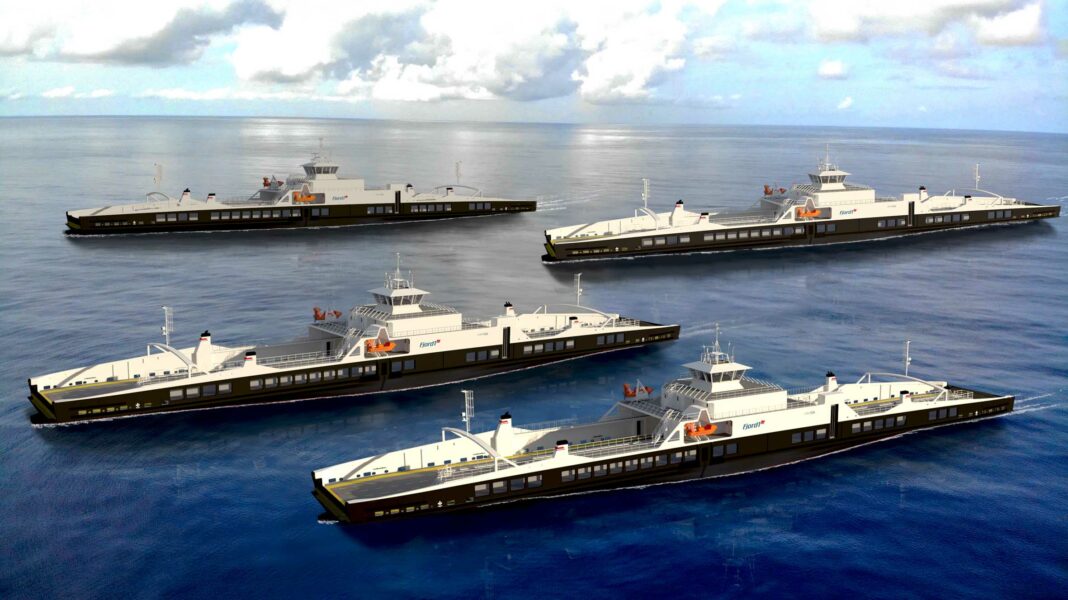On 20 March 2024 Norwegian Electric Systems (NES) was contracted by Tersan Shipyard to act as system integrator and supply a number of technologies to the four autonomous, zero-emission ferries that will operate the Lavik-Oppedal crossing on the northwest coast of Norway.
Under the contract, NES will act as system integrator and provide complete system deliveries for power system, automation and bridge design including navigation and communication solutions for the four ferries.
As part of its system integrator role and under this specific contract, NES will prepare the vessel for the delivery of autonomous vessel technologies. NES is also delivering an extended automation scope in order to ready the vessel for future autonomous sailing and docking capabilities.
NES’ propulsion package, including switchboards, batteries, generators and on-board charging solutions, has been carefully designed to secure reliable and efficient vessel operations. All components work in harmony to optimise vessel performance and reduce the vessels’ environmental footprint.
NES, which specialises in energy design and smart control systems, will utilise its three Norwegian facilities in Bergen, Egersund, and Ålesund to design, assemble, and test equipment. The company’s office in Istanbul, Turkey, will supply part of the technical scope as well as commissioning support on board the vessels,
In early March, Norwegian Electric Systems’ sister company, HAV Design, was contracted to deliver ship design and an engineering package for all four autonomous ferries. Both Norwegian Electric Systems and HAV Design are subsidiaries of HAV Group ASA.
The ship design is based on a future-oriented operating concept that ferry operator Fjord1 has developed together with HAV Design. The ferries will be able to operate with autonomous navigation and a high degree of automation of vessel functions that replace manual operations on board.
Lavik–Oppedal is a ferry route that crosses the Sognefjord, on the northwest coast of Norway, from Lavik in Høyanger municipality to Ytre Oppedal in Gulen municipality. The ferry crossing takes 20 minutes, and the route is 5.6 kilometres long. The four newbuild zero emission ferries will operate the route from 1 September 2026 onwards.


